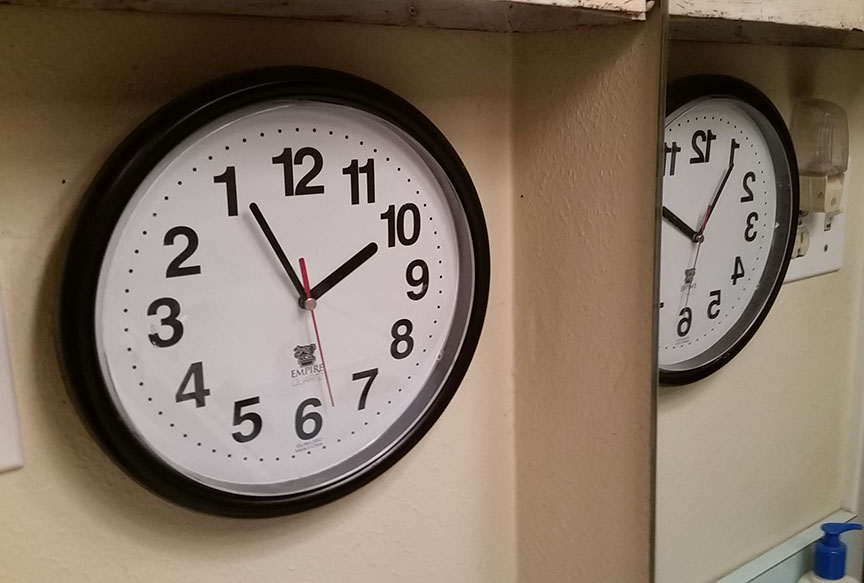 Jan 3, 2024–I was recently making conversation with humans from different generations. They were fondly reminiscing about their “growing up” years, incredibly the obscure past of the 1990s.
Jan 3, 2024–I was recently making conversation with humans from different generations. They were fondly reminiscing about their “growing up” years, incredibly the obscure past of the 1990s.
As they discussed how laughable it was that “today’s kids” were baffled when confronted with a rotary phone, it got me wondering if there was such a thing as a perfect time in history.
We humans easily fall into the fallacy of the “ideal.” It happens when discussing climate, as if there were a decade when temperatures were ideal. We ascribe the same criteria of “perceived perfection” to generations, times of peace, inflation rates, sports teams, and the golden age of black and white television programs.
As a mind exercise, I cast back my neural net back to what might be judged the perfect time in history. For the purpose of discussion, I decided the human race came as close to perfect in the 1950s.
Medicine
Most of the childhood depredations had been conquered, including polio, malaria. No one died from scarlet fever, diptheria, or strep infections, and the horrors of AIDS and covid were still stuff of dystopian fiction.
Nutrition
Likewise, nutrition was understood enough to overcome rickets, and other common vitamin deficiencies. Further, we were generally fit, in shape, and not obese or anorexic. Foods were mostly unadulterated. Most of America still ate natural foods, including home-raised beef and eggs, vegetables from the garden, and fruit from the trees in the yard. Plant genetics, hybrids, and herbicides were beginning to be applied, enough to increase the food supply by significant margins.
Communications
We had at our fingertips telephones, a way to “reach out and touch” anyone in the world. Despite persistent predictions of video phones, the world was not yet subject to the invasive presence of Zoom.
Media
It was the age of television, yes. But in those early years, TV was used to bring into our homes sports, education programs, erudition with opera and concerts, and entertainers our parents had grown comfortable with in movies and on radio, such as Bing, Bob, Benny, and Berle.
Desi was just starting to love Lucy, and soon followed Andy Griffith, Dick Van Dyke, the Beaver and Dobie Gillis. Best of all, the broadcast day didn’t start until Captain Kangaroo came on, and turned off shortly after midnight with a rousing rendition of the Star-Spangled Banner. The evil with today’s Internet streaming is not the content, but that you cannot turn it off, and don’t.
Travel
By the 1950s, all major forms of travel were in place. We could drive in safety and comfort, passenger trains still took you close to every destination, and Greyhound carried you over those last few miles. Flying was not only possible, it was a pleasure, with full meals served by accommodating stewardesses. Space travel had begun, the moon was in sight, and our science fiction promised hover cars and personal jetpacks.
War
We had successfully navigated two world wars and the atomic age, after experiencing just enough of its power and destruction to make all living persons swear to be ever-vigilant in not letting it destroy civilization.
Of course, not all races, classes, and countries existed in ideal situations. But you know what? Has there ever been a time in history when that wasn’t the case? People are flawed. Racism, poverty, crime, and all the plagues will always be with us.
Perhaps what best defined so-called “perfect times” was the promise of a better future. We naively saw time as a march of progress. More diseases would be conquered, more conveniences created. There would be robots to alleviate the drudgery of housework, new crops to feed a starving world, and, after the horror of two world wars, peace would descend upon all mankind. The Jetsons were our model, with dad tootling off to work in his jet car, Rosie the Robot cleaning up the house, and the kids learning science on these magical tools called computers.
Alas, it turns out the future was not a path, but a confusing highway interchange, with endless exits, on-ramps, and merge lanes. It was not a case of “either-or” but the existence of countless alternate universes, all existing simultaneously and interfering with all the others. It became increasingly challenging to maintain a direction, when every option was equal in possibility, including gender, race, wealth, religion. Turns out when you arrive at a place and time when everything is equally possible, there is nothing to differentiate one thing from any other. Nothing matters.
Will Generation XYZ+ in 2073 look back at 2023 as having been the best of times?
Let’s wait and find out.